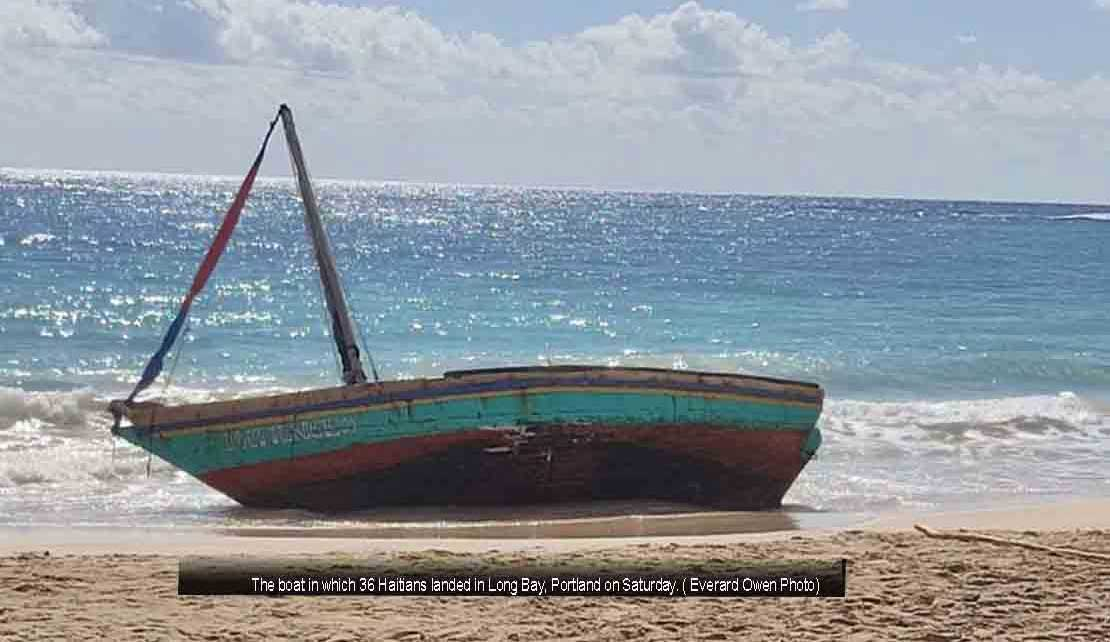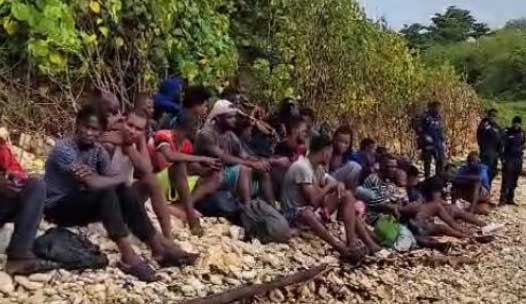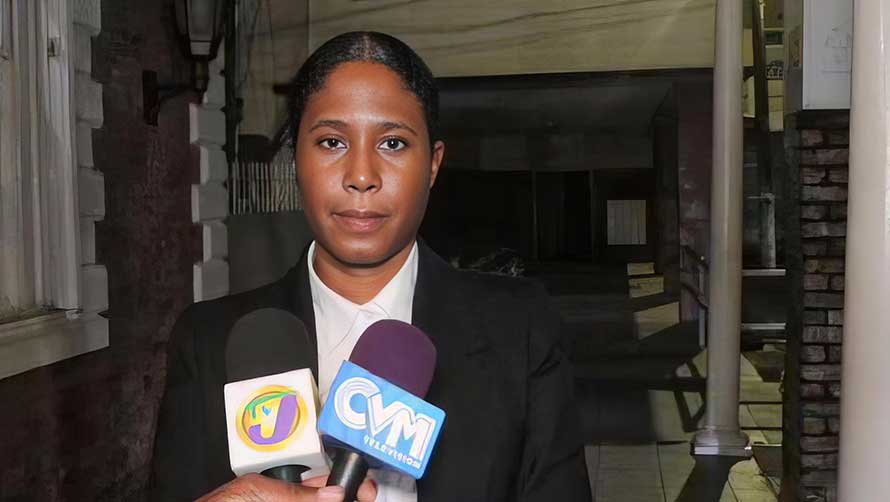HAITI | Troubled Waters: Jamaica's Paradoxical Stance on the Haitian Crisis

MONTEGO BAY, July 30, 2024 -In the sun-drenched Caribbean, a storm of controversy brews as Jamaica navigates the turbulent waters of the Haitian refugee crisis.
The island nation finds itself caught between its international commitments and domestic policies, creating a paradox that has left many observers perplexed and concerned.
A Swift and Controversial Return

Their hopes for sanctuary were quickly dashed as Jamaican authorities, in a move that raised eyebrows across the region, swiftly returned them to Haiti via a Jamaican Coast Guard vessell.
Minister of Foreign Affairs and Foreign Trade, Kamina Johnson Smith, has maintained that Jamaica’s laws will be respected, therefore the Haitians who arrived on the shores of Portland, which included minors, are to be treated as illegal entrants since no specific claims have been made by the group of Haitians.
“We have not taken a fixed policy position in respect of Haitians arrivals in Jamaica but at this point in time we know that we are creatures of international law and we are always guided by that in terms of rules of asylum and refugee status,” Johnson Smith outlined.
This action flew in the face of appeals from the United Nations High Commissioner for Refugees (UNHCR), which has been urging states in the region to suspend forced returns of Haitians due to the dire situation in their country.
Malene Alleyne, an attorney and founder of the human rights group Freedom Imaginaries, voiced her dismay at the hasty expulsion:
"If it is that the Haitians have been returned, I think that would be a flagrant violation of international law and the Refugee Convention in particular, which prohibits the return of persons for a place where they could face persecution. And we know that Haiti is one such place because the UN Refugee Agency has called for moratorium on forced returns because of the crisis in the country right now."
A Tale of Two Jamaicas
While one arm of the Jamaican government sends Haitian refugees back to their troubled homeland, another arm reaches out to the international community, seeking solutions to the very crisis driving these refugees to its shores.

Taking his role seriously, Prime Minister Holness has gone as far as Brussels, urging European Union countries to consider financial contributions to alleviate the humanitarian and security challenges facing Haiti.
Further cementing Jamaica's central role in regional efforts, CARICOM has also appointed an Eminent Persons Group to seek solutions to the Haitian tragedy. This group, led by former St. Lucian prime minister Kenny Anthony, includes two other former prime ministers: Perry Christie of the Bahamas and Jamaica's own Bruce Golding.
The Paradox Deepens
The contrast between Jamaica's international diplomacy and its domestic refugee policy could not be starker. As Jamaican officials lobby for international support and compassion for Haiti, their own shores echo with the sound of departing boats, carrying rejected Haitian asylum seekers back to the very turmoil Jamaica purports to be addressing.
Mickel Jackson, Executive Director of Jamaicans for Justice, comments on this apparent contradiction:
"These are not just numbers; they are people fleeing dire circumstances, seeking refuge. Each individual deserves an assessment before we decide their fate. Sending them back without proper evaluation is not just a policy issue; it's a humanitarian one. It's perplexing to see Jamaica taking a leadership role in CARICOM, advocating for Haiti on the world stage, while seemingly lacking empathy in our treatment of Haitian refugees arriving on our shores."
A Nation in Crisis
The reasons behind this exodus are stark and sobering. According to the UNHCR, Haiti is a cauldron of violence, with armed gangs running rampant, kidnappings commonplace, and basic necessities in short supply. The UN Human Rights Office paints a grim picture, describing it as the "worst human rights and humanitarian situation in decades."
Legal Limbo and International Obligations
Jamaica's actions appear to be in direct conflict with the principle of non-refoulement, a cornerstone of the Refugee Convention. This principle prohibits the return of refugees to places where they face persecution and requires signatory countries to provide legal status and basic rights to asylum seekers.
The rejection of asylum applications for 37 Haitian refugees who arrived in July last year has further muddied the waters. Freedom Imaginaries is preparing to appeal this decision, with Alleyne stating:
"We will go forward with the appeals because this is a matter of extreme importance. The UN has made it clear that the situation in Haiti is not conducive to forced returns and has called upon states to suspend the forced return of Haitians to Haiti."
A Caribbean Conundrum
As Jamaica continues to play a central role in CARICOM's efforts to address the Haitian crisis, its domestic policies towards Haitian refugees raise questions about the coherence of its approach. The nation finds itself at a crossroads, torn between its regional diplomatic responsibilities and its domestic concerns.
The world watches as Jamaica attempts to reconcile these conflicting positions. Will it align its domestic refugee policies with its international diplomatic efforts? Or will it continue to navigate these troubled waters with one hand extending aid on the global stage, while the other turns away those seeking refuge on its shores?
As the Caribbean Sea continues to carry desperate Haitians to Jamaica's shores, the answer to these questions will have profound implications, not just for Jamaica and Haiti, but for the entire region's approach to humanitarian crises and international law.
-30-
